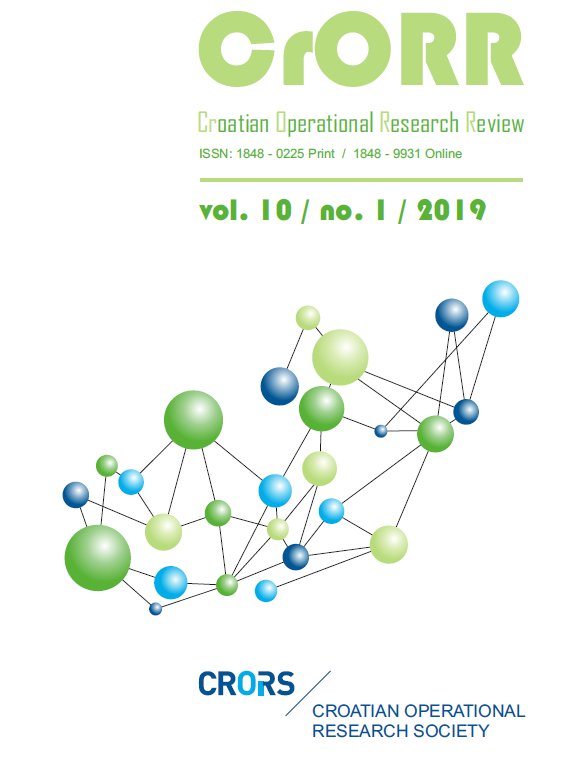Jordan neural network for inflation forecasting
Abstract
In times of pronounced nonlinearity in macroeconomic variables and in situations when variables are not normally distributed, i.e. when the assumption of i.i.d. is not fulfilled, neural networks (NNs) should be used for forecasting. In this paper Jordan neural network (JNN), a special type of NNs is examined, which is because of its advantages in time series forecasting suitable for inflation forecasting. The variables used as inputs include labour market variable, financial variable, external factor and lagged inflation, i.e. the most commonly used variables in previous research. The research is conducted at the aggregate level of euro area countries in the period from January 1999 to January 2017. Based on 250 estimated JNNs, which differ in selected variables, sample breaking point and varying parameters (number of hidden neurons, weight value of the context unit), the model adequacy indicators for each JNN are calculated for two periods: “in-the-sample” and “out-of-sample”. Finally, the optimal JNN for inflation forecasting is obtained as the best compromise solution between low mean squared error “in-the-sample” and “out-of-sample” and low number of parameters to estimate. This paper contributes to existing literature in using JNN for inflation forecasting since it is rarely used for macroeconomic time series prediction in general. Moreover, this paper defines which set of variables contributes to the best inflation forecast. Additionally, JNN is examined thoroughly by fixing certain parameters of the model and alternating the other parameters to contribute to the JNN literature, i.e. finding the optimal JNN.
Downloads
Published
Issue
Section
License
- Authors retain copyright and grant the journal right of first publication with the work simultaneously licensed under a Creative Commons Attribution License that allows others to share the work with an acknowledgement of the work's authorship and initial publication in this journal
- Authors are able to enter into separate, additional contractual arrangements for the non-exclusive distribution of the journal's published version of the work (e.g., post it to an institutional repository or publish it in a book), with an acknowledgement of its initial publication in this journal.
- Authors are permitted and encouraged to post their work online (e.g., in institutional repositories or on their website) prior to and during the submission process, as it can lead to productive exchanges, as well as earlier and greater citation of published work (See The Effect of Open Access).


